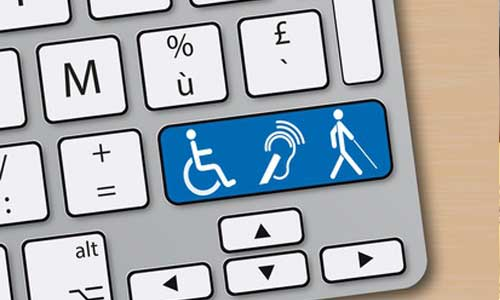" In the context of the digital transformation of public and private services, accessibility is a necessity for the majority of citizens. This majority includes above all the millions of people with disabilities, but also the elderly, the youngest with myopia, etc. Today, it is only by developing accessible digital services that the players will be able to reach a large part of the population" observes the National Digital Council (CNNum) in a report submitted on February 5.
Accessibility is now a legal obligation and sanctioned by law: "however, this need is not sufficiently taken into account by public and private actors. As far as access to digital public services is concerned, the digital accessibility of these services remains the exception and not the norm" deplores the National Digital Council. " Only 4% of public websites have published their accessibility certificate (RGAA compliance)".
"In a context of dematerialization of the administration, the consequences are considerable for access to rights of people with disabilities. To improve this situation, the National Digital Council proposes to "streamline the management of digital accessibility of public services by creating a Ministerial Delegation of Digital Accessibility (DMAN)", to " empower the actors of the administration, for example by appointing a delegate for digital accessibility" and to "strengthen the rights of users vis-à-vis the administration, by establishing an online reporting platform that will be responsible for processing and centralizing complaints .The National Digital Council also points out the insufficient consideration of accessibility by the cultural sector: "the resumption of the means of accessibility (the subtitles), on the various supports (mobile applications or digital platforms) is not systematic and/or effective". It proposes, to this end, to entrust ARCOM (Regulatory Authority for Audiovisual and Digital Communication) " with the task of regulating the accessibility of television services and audiovisual media sites" and to "make the actors in the audiovisual content value chain accountable through a harmonization of the accessibility regime with public actors, including video sharing platforms under certain conditions".
Regarding access to knowledge, the National Digital Council proposes to "improve the production of accessible and adapted digital educational resources by creating an agency for accessibility and adaptation of digital books (in order to steer the production of accessible and adapted digital books)", to implement the obligation of accessibility of digital work environments and to " develop skills in adapting and making accessible digital educational resources in National Education and Higher Education".
These sectoral observations were accompanied by a transversal observation: "the lack of training for web and digital professionals in accessibility". To this end, the National Digital Council proposes to " integrate digital accessibility into the initial and ongoing training of digital professionals" and to "structure the digital accessibility industry".
Necessity, since it meets both societal and legal obligations, " digital accessibility is also an opportunity, insofar as it could lead to the emergence of a new model of society and digital economy" concludes the National Digital Council.
Référence :





